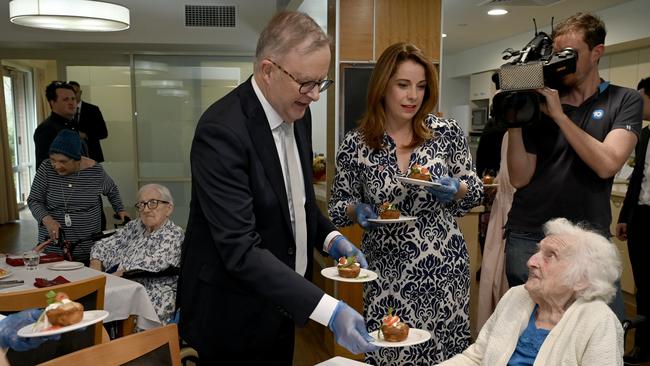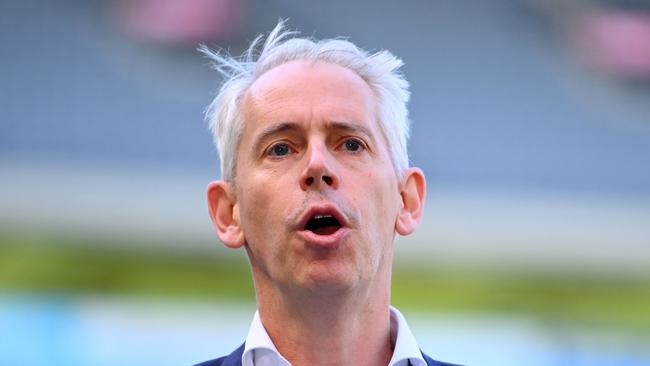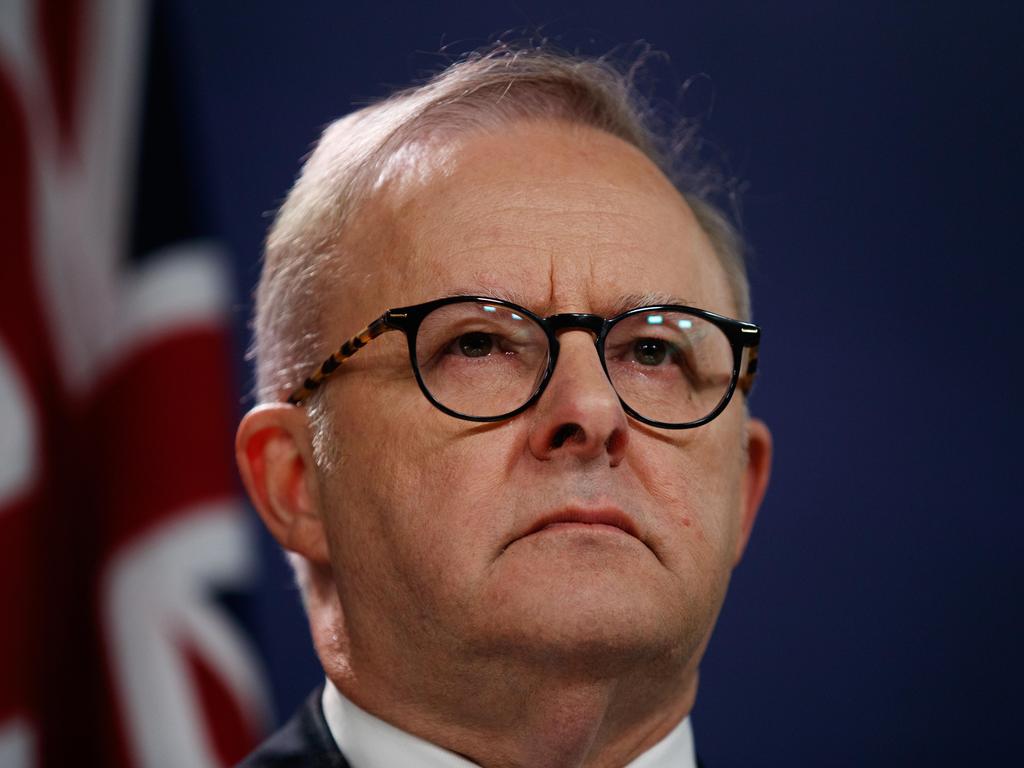Anthony Albanese’s aged care worker scheme grants 155 visas
New figures reveal just 155 workers have been issued permits under the union-backed policy designed to fast track foreign workers into the aged care sector.

Less than 2 per cent of visas have been granted under Labor’s union-backed policy designed to fast track foreign workers into the aged care sector almost a year after it was established, despite the government’s claim the scheme would alleviate critical workforce shortages.
New figures from the Department of Home Affairs provided to The Australian reveal just 155 workers have been issued permits under the government’s Aged Care Industry Labour Agreement as of January 5 this year.
The scheme has slowly grown in recent months, with separate government figures provided to Liberal Senator Paul Scarr revealing less than five visas were granted in the program’s first six months.
This is despite the scheme being able to provide access to more than 14,000 direct care workers over five years.
Employer groups and aged care providers expressed concern that Labor’s policy – which requires providers to enter into a memorandum of understanding with unions to tap into the pool of workers – is pressuring staff into joining industrial organisations.

Aged Care Industry Association chief executive Peter Hoppo said it was disappointing the labour hire agreement had not been effective in bolstering the aged care workforce, warning the sector had “largely moved on”, preferring to source workers through other channels.
The peak body – which represents 30 direct members – expressed concern about the use of foreign workers in the sector.
“There is also a concern about getting the workforce balance right, especially for older Australians who may be living with memory loss or have difficulty communicating,” Mr Hoppo said.
“If you have someone who is brand new to Australia and still coming to terms with our culture and colloquialisms, they might not be the right fit in every situation.”
The Albanese government’s Aged Care Industry Labour Agreement was announced last May in a bid to fast-track foreign workers to alleviate labour shortages and help providers meet government reforms including mandated care minutes.
But the requirement for providers to sign an agreement with the union has sparked backlash from employer groups, who have warned of union overreach.

Under the agreement, unions have special access to workers including through inductions that exclude management. The agreement also forces providers to ensure workers have time off to attend union meetings and that local staff are offered 76 hours a fortnight of work before overseas workers are used.
Australian Industry Group chief executive Innes Willox said it was clear the new labour agreement had “not got off to a flying start” as he accused unions of holding up visa applications and creating more delays.
“It may be that employers are naturally loath to consult unions on the make-up of their workforce. Employers more broadly are deeply resistant to schemes such as this,” Ms Willox said.
“The application pipeline over the current six-month period will give us a clear guide on whether the scheme, which employers have always been dubious about, makes any difference.”
Australian Chamber of Commerce and Industry chief executive Andrew McKellar said Labor’s program “appears to be a complete flop and employers have run a mile”, urging the government to implement sensible policy to address critical workforce shortages rather than “business opportunities for unions”.
“It’s not a surprise since it explicitly promotes the interests of unions ahead of addressing the needs of aged care,” Mr McKellar said.

Immigration Minister Andrew Giles defended the program, saying the number of visa applications were increasing.
“The Albanese government’s tripartite approach to the aged care labour agreement is working; 34 providers have signed up since May and visa applications are increasing under the program,” Mr Giles said.
“These aged care providers are able to sponsor up to 14,000 visas over the next five years, giving them the certainty they need.”
Opposition home affairs spokesman Dan Tehan said Labor would “rather help their union mates” rather than address the shortfall in aged care workers as he accused the government of having misguided priorities after it issued record student visas and special Covid permits.”
“You can count on one hand the number of direct care workers that have come to Australia when aged care is facing a massive skilled worker shortage,” he said.
United Workers Union secretary Carolyn Smith agreed the scheme had been off to a slow start with providers “taking their time to decide whether they want to participate”.







To join the conversation, please log in. Don't have an account? Register
Join the conversation, you are commenting as Logout